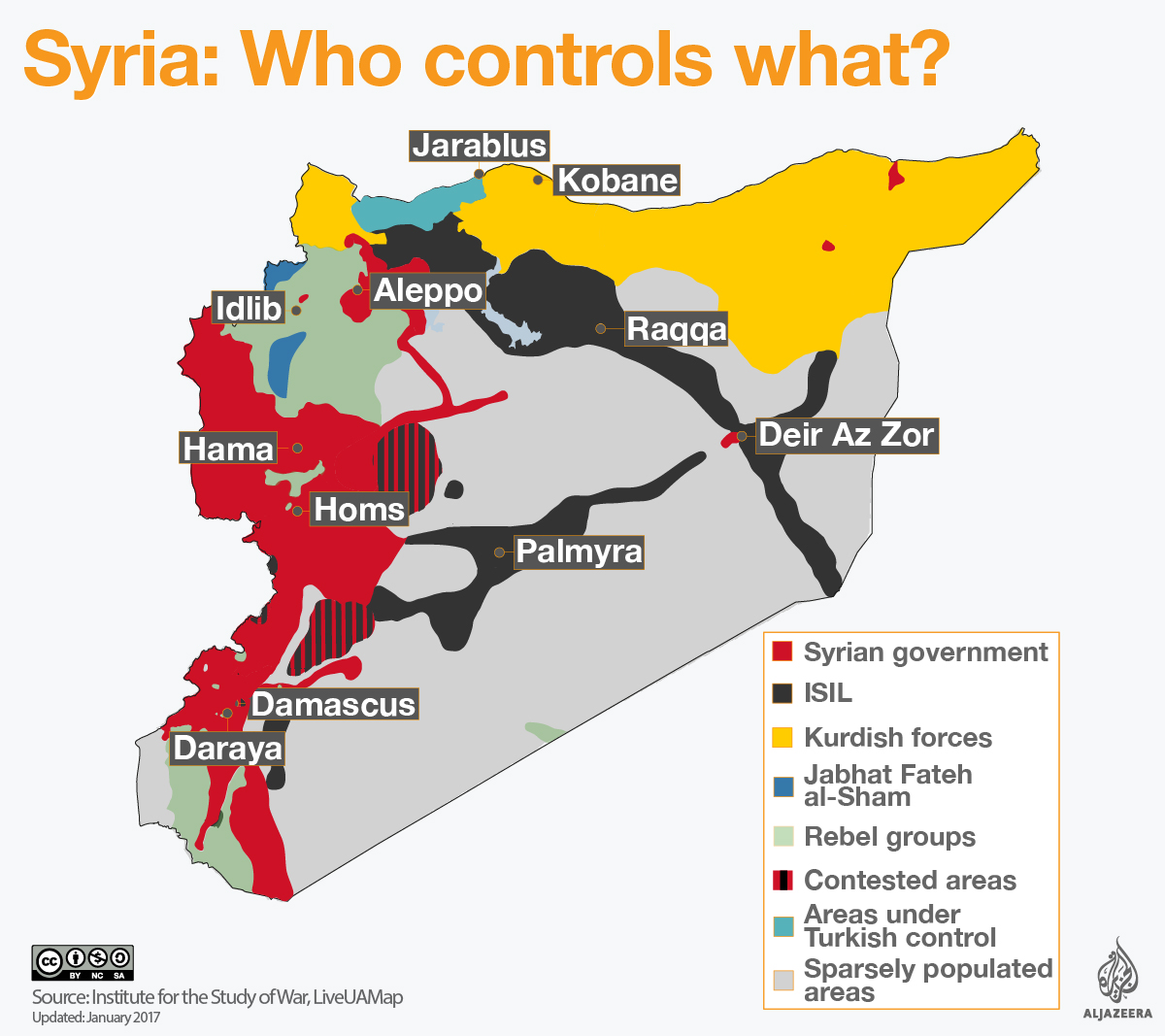With Infectious Trust and Good Will All Around
"The rebels do not trust Russia. This will be a test to see how much they can control their allies [the regime and Iran]."
"Moscow presented itself as the moderator, so it must moderate them."
Asaad Hanna, spokesman, Free Syrian Army
"[The sides will] establish a trilateral mechanism to observe and ensure full compliance with the ceasefire and prevent any provocations."
"[The three nations support the participation of the armed opposition groups in the Geneva talks to commit to] minimizing violence, building confidence, ensuring humanitarian access, protection and free movement of civilians."
Kairat Abdrakhmanov, foreign minister, Kazakhstan, Astana, Kazakh

"I don't believe that the communique will be strong enough to be taken to the UN."Off to a promising head-start yet again! The Syrian government and its rebel groups have tentatively agreed that Russia, Turkey and Iran will act as monitors jointly to ensure the ceasefire holds beyond its current fragile state, in hopes that the six years of unremitting violence will finally come to an end. Signed by Ankara and Moscow, along with Tehran on behalf of its client state, the armed rebel groups have not yet officially endorsed the accord.
"[Rebel demands, including the lifting of sieges, the release of prisoners and the delivery of aid to besieged areas, had not yet been] confirmed."
Opposition spokesman Yahya al-Aridi
"[The opposition is] misinterpreting [the tenets of the truce. The] provocative tone and lack of seriousness in the opposition delegation chief's speech [had] irritated the attendees' diplomatic senses and experience."
"[Opposition groups who signed the truce deal were] trying to undermine and sabotage the Astana meetings."
Bashar al-Jaafari, head, Syrian government delegation
Which didn't stop Bashar Jaafari, Syrian representative to the United Nations, hailing the talks as a resounding success, even while the opposition objected that it had unresolved major reservations. The objection of the 14-member rebel delegation pointed to the inclusion of Iran as lacking credibility as a monitor, given that its Shiite militia proxies in Syria had violated the ceasefire repeatedly. Hezbollah in particular was singled out.
The Lebanese Shiite militia Hezbollah continued to carry out attacks on the Wadi Barada valley outside of Damascus where the conflict has continued to be fiercely fought since the truce came into force on December 30. Iran has seen to the manpower and resources represented by its Shia proxy militias, that have so hugely aided the government of Bashar al-Assad in its determination to strengthen its influence.
The Islamic Republic of Iran views the conflict in Syria as a reflection of the larger Sunni-Shiite campaign for supremacy. The Syrian opposition places no trust whatever in Iran being invested in a political solution to the civil war. The current negotiations, however, represent the first breakthrough in the six-year conflict in the very fact that the rebels and government had appeared in the same room, even for the brief time it took to agree to disagree.
It seems that since Turkey and Russia straightened out their 'misunderstanding' whereby Turkey's airforce shot down a Russian jet that had momentarily strayed into its airspace, with an abject apology from Recep Tayyip Erdogan and a gracious acceptance from Vladimir Putin who had exerted trade and isolation punishment on his errant colleague, the matter had moved forward as it never had with U.S. involvement.
There was the expectation that the moderate among the rebels would take steps to distance themselves from Islamist groups established among them. And that the three partners in the Syrian civil war would now divert their attention and their military intentions toward the greater imperative of jointly attacking Islamic State of Iraq and the Levant. Even as the talks were progressing,
Free Syrian Army groups in northwestern Syria where the rebellion had its major foothold in Idlib, came under attack by a jihadist group formerly linked with al-Qaeda. Finding a solution to this multi-pronged war between the sects in Islam, the tribal affiliations and aspirations of the terrorists in their multifold manifestations will certainly be more difficult to attain that a declaration of ceasefire, one element against the other.


<< Home